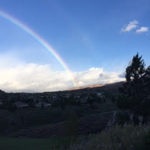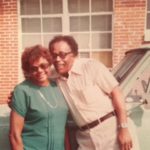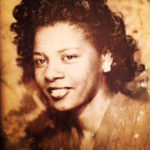My heart aches about the strife that results when people who share a village won’t find a way to bridge gaps in the community. I don’t understand why it is so difficult for grown folks to do the necessary work, whatever that entails, to make life better for the young people who call their village home. My heartache presses me to write more and to speak more about the benefits of overcoming the barriers that divide and impose on us conditions and circumstances that steal the hope, the safety, and the unifying spirit that are essential to a vibrant, protective, hope filled environment. As communities of people, we seem to be missing the point that we must care about the diversity of voices and the very broad, multifaceted definition that creates healthy, sustainable communities. There are so many reasons that this sad phenomenon is our reality.
Last week I spent a lot of time with a family member who is fighting a good fight with cancer. I talked to the doctors to gain a better understanding of the fight ahead of my loved one. During the conversation, I reflected on my lessons from my genetic counseling sessions. My simplistic version is that cancers present in our bodies for different reasons, some hereditary and some environmental. Our bodies are formed with natural defenses to stave off harmful agents that attack us. However, in order for the body to perform optimally, some input is required from us. We must contribute to the biological process that maintains the health of our bodies. Each of us is the keeper of free will and each of us controls the decisions that can impact the ability of our bodies to withstand the attacks of the cancers. When I decided to do the genetic testing, my goal was to learn if I had any greater risk of having breast cancer than any other similarly situated person. Once I started down the path, I asked the counselor to expand the testing to include other things. Delving into the possibilities of disease in my life was frightening. Because of my family history with cancer and other diseases, my doctor thought it would be a good idea for me to engage in the scary work of exploring the science of my body. Why do that when it’s so much easier to just wait and see? Why do that when it was so frightening for me to go to those appointments alone?
I did it because I have learned that knowing is better than not knowing. Knowing earlier is better than learning about it later. On the other hand, knowing meant accountability to do something. Knowing meant accountability when I do nothing. Knowing meant accountability when I decided to just do the same thing I had been doing before I knew. Knowing meant ownership by me for the residual impact that my decisions could heap upon me, my family, and my kids. Honestly, the kid part was the part that made me schedule the first appointment with the genetic counselor. Even if I wouldn’t do the hard work for myself, I sacrificed and did the scary work to give my children the tools to have the best chance at a fruitful, prosperous, healthy life.
During the process of the genetic testing, I learned that my chances of contracting cancer was not any greater than those of the average person. Unfortunately for me, that meant that many of the cancers we evaluated were caused by environmental agents and not hereditary agents. “Oh wow,” I said to the counselor as she looked up from her paper with a smile and a nodding head. Her response signaled that she knew that I got it. I knew then that many of the decisions ahead of me related to food choices, stress, sleep habits, pollutants, and the trash I feed my brain, my body, and my heart could directly impact my ability to equip my body to wage a successful battle against attacks from harmful agents. That meant ownership, accountability, and responsibility.
It might have been so much easier to just take that information and start looking for other people and situations to blame. When people discuss the origins of cancers, there is often talk of conspiracies theories and I could have joined that dialogue, but that would have dismissed my complicity in engaging in behaviors that promote harm to my body. I knew that I had to accept that while I didn’t control the onset of all diseases, I was a decision maker and my decisions could contribute to the quality of my health. As I did the research into my family medical history, per the instruction of the genetic counselor, I had the blessing of talking to elders in the family and spending time with them sharing stories about our family history. I learned that my great grandmother was a freed slave. I already knew that my maternal great grandfather was a white man, but I didn’t know that he owned slaves. The fear of the result of the genetic testing was now compounded by the shock that I might not ever know my full medical history because of visages of slavery. That man and all four of the children my great grandmother conceived with him were dead. Except for my mother and one of her brothers, all of the grandchildren of that union were also dead and the family medical history died with them. His white family did not keep in touch with his other family so after his son lost contact we lost contact with him. This is simply a summary of my story. In no way does my version of my truth cover every potential fact scenario for others. I can only speak to what I have experienced in my life and how I think my experiences are relevant to discussions about bridging gaps in our communities.
I believe that communities possess the foundational tools and strength to build systems that can defend against systemic, lethal attacks. However, I don’t believe that it is easy to organize partnerships and strategic plans that merge the varied interests of the stakeholders in the community. While it may be complex and challenging, it is necessary and possible if we are willing to put in the work. We have to be willing to hear and ask thoughtful questions rooted in a desire to understand even if we find we don’t agree or realize we may never completely understand. I knew very little about genetics or the science of cancer when the genetic counseling began, but I listened and trusted the counselor because she had more experience than I did in this area. I listened to her put the issues in simplistic terms that even I could comprehend. I listened and evaluated her comments recognizing that her goal was to help me and not to make me feel belittled and ignorant. I listened with intensity because the information could literally mean life or death for me and more importantly significant life challenges for my children. The potential of cancer cells to move undetected through my body and take over reminded me of how some things creep into our communities, seize the communities, and then leave the villagers grumbling and placing blame.
Somehow we have to figure out how to allow differences in opinion or the challenges that divide our communities to become the catalyst that promotes meaningful conversations and accountability for the sicknesses that inhabit our communities. If I had made the decision to just act like my family history did not include cancers with the potential to overtake my body and wreck havoc on my life, I would never have any idea about how to help my family make lifestyle changes to help us live healthier lives. I also loved the fact that in doing the hard work I deepened my relationships with some of my family. Having deeper, more meaningful relationships in our communities may also be a positive result of us doing the tough work of bridging gaps. I recognized that my work didn’t make the risk dissipate completely, but it did assure that my children and other family members would have a foundation of facts and truths upon which to build. Similarly, the community laborers can establish a foundation of unity and concern for each other that enhances the relationships and increases the chances of the stakeholders demonstrating that the health of the village is an urgent concern.
Like our bodies, the communities need some distance from the bickering and arrest that tire the people in the villages. Like our bodies, the communities require peaceful, controlled dialogs that lend themselves to recovery and healing. Like our bodies, our communities need to be nourished with healthy food in the form of messages driven by hope and promise as opposed to fear. We have to meet each other at a neutral site and embark on the journey of learning and understanding. We need to share stories and challenges with each other. We need to find a way to exercise patience with one another and affirm the feelings of others even if their story is not our story. We need to act with a sense of urgency for the benefit of uplifting our youth. If we don’t intercede for our children, we leave them vulnerable to a diseased community.
Paulo Coelho, the author of The Alchemist, wrote:
“I have known true alchemists,’ the alchemist continued. ‘They locked themselves in their laboratories, and tried to evolve, as gold had. And they found the Philosopher’s Stone, because they understood that when something evolves, everything around that thing evolves as well.”
The children in our communities need us to make them believe that they are valued. Our children need us to set aside our pride and selfishness. They need to see us make choices that place us at a lunch table or a coffee date with a combination of community stakeholders. They must see a show of solidarity for the mission to heal our communities. Instead of becoming vocal about their failings and all of the ways they make us afraid, they need to hear loving and supportive initiatives that breath hope into their spirits. Our children need to believe in a hope greater than anything they can see. We need to become more like the “true alchemists” who understood “that when something evolves, everything around that thing evolves as well.” We have to do the hard, scary work of helping “everything around” us become better in the spirit of the alchemist.





